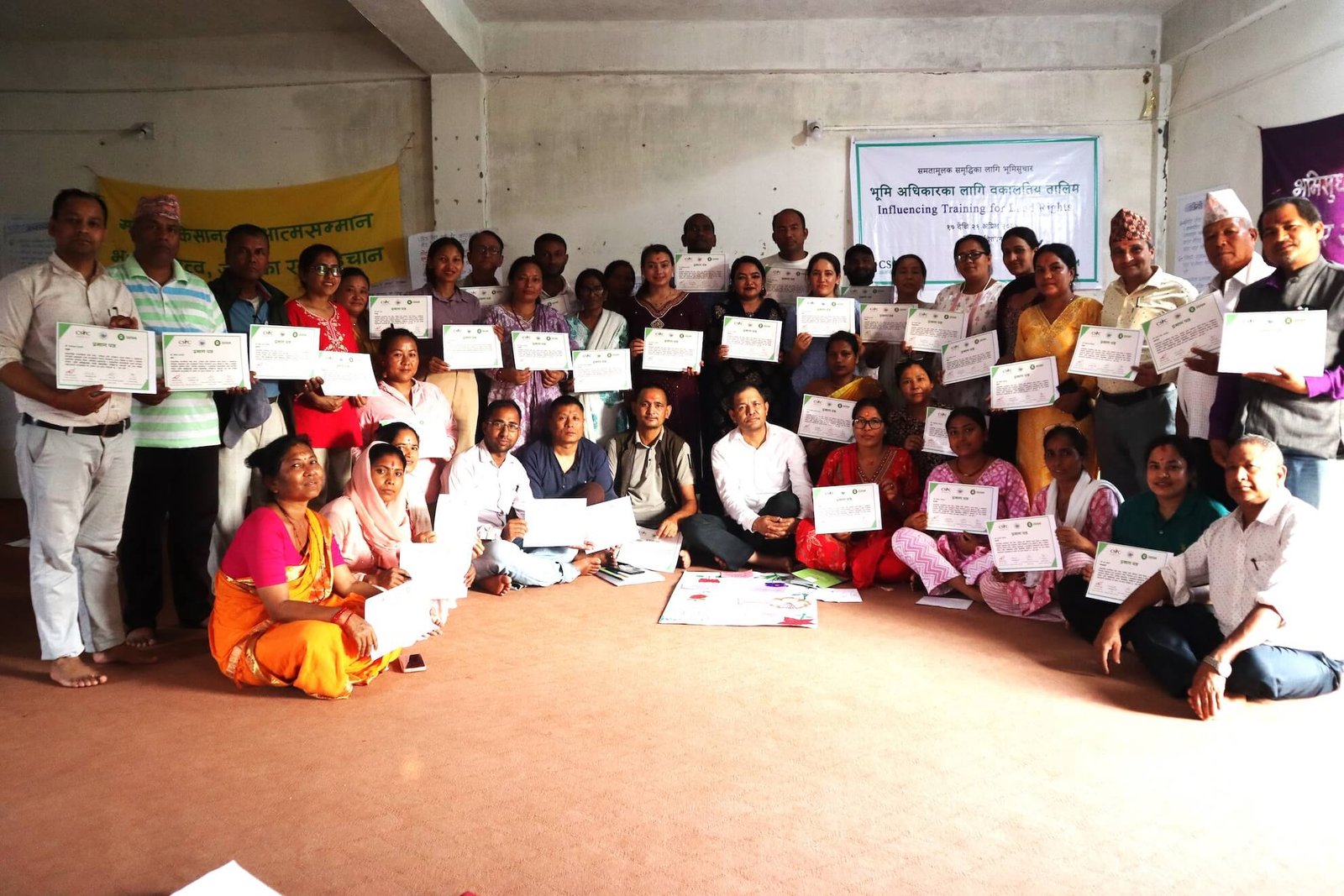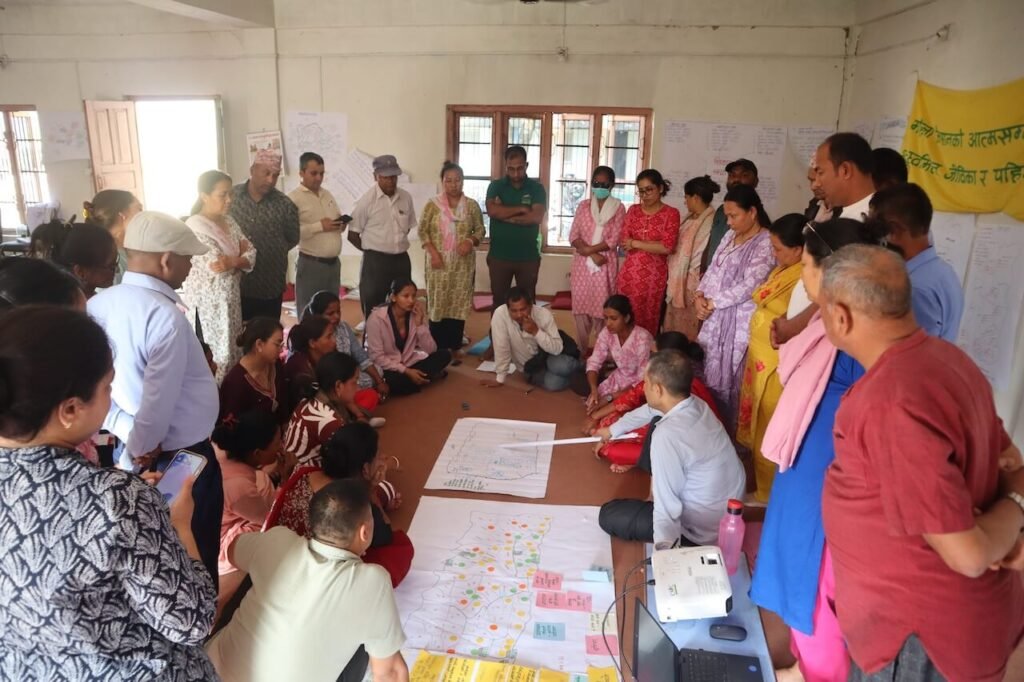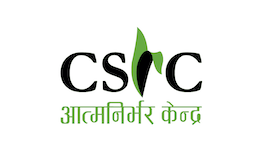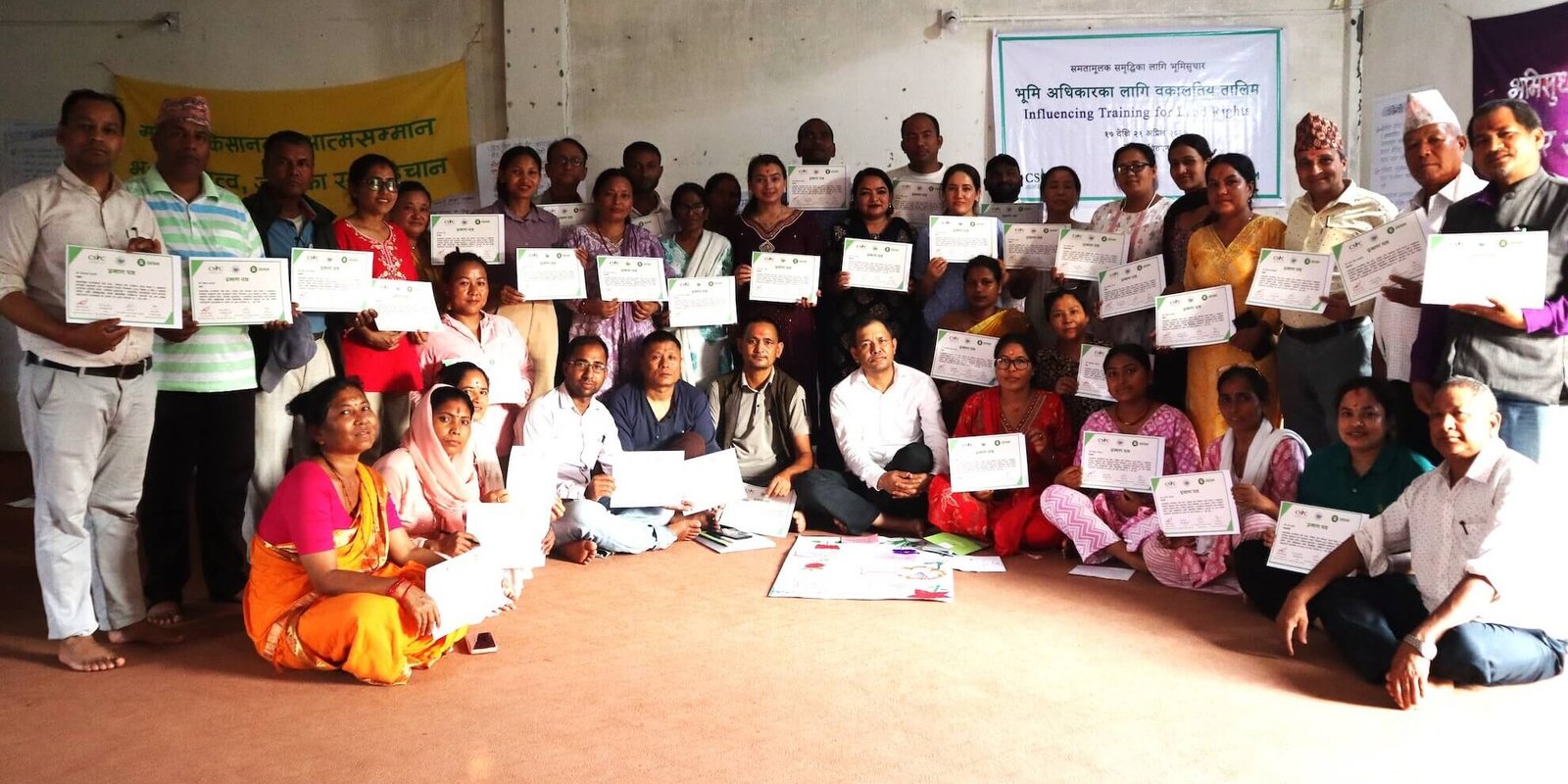
CSRC Nepal
A four-day influencing training on land rights was successfully held at Bhumighar in Thimura, Chitwan from 17th to 20th April 2025. The training was attended by 40 land rights campaign leaders and activists from 24 districts across seven provinces, including 23 women and 17 men. The program was jointly organized by Community Self Reliance Centre (CSRC) and National Land Rights Forum (NLRF) supported by OXFAM,Nepal.
The objectives of the training program were:
- Facilitate the exchange of policy and practical knowledge to ensure impactful management of landless Dalits, Sukumbasi and informal settlers.
- Enable leaders to take on facilitation roles at different levels of post-training.
- Develop advocacy strategies tailored to the socio-political needs of districts and provinces through discussions with leaders
During the training, participants engaged in discussions and studies of national and international success stories related to land rights advocacy. They analyzed land-related policies, identified critical issues, and explored the links between land rights and social justice.
Mapping and analysis of the local context, Study of land policies and law and procedures for managing landless and informal settlements.
The training structure was focused on the three major areas – Mapping and analysis of the local context, Study of land policies and law and procedures for managing landless and informal settlements.
A mapping exercise was conducted to assess the current status of the Land Commission’s work at the local, district, provincial, and national levels, as well as the organizational structure of land rights forums at the district and municipal levels.
The conclusions drawn after the district level mapping presentation

Organizations working in land rights need better collaboration for meaningful progress. In Madhesh, discrepancies in data collection risk excluding landless Dalits and squatters, requiring verification and inclusion. Errors in forms highlight the need for thorough checks, while district-wide awareness and ward-level mapping are essential for structured planning. The absence of citizenship among some landless Dalits risks their exclusion, requiring targeted inclusion measures. Local governments must speed up data collection and verification, working with district committees to ensure fair representation.
NLRF emphasized the need to further strengthen the organization, consolidate past movements, and develop strategic actions. They highlighted the importance of respecting previous agreements, advocating at the different level with land political agendas, and making the forum’s structure more robust.
Expert member of the LIRC, Dr. Jagat Basnet, presented focusing on the order formation, laws, regulations, and procedures (including the latest updates) of the LIRC. He also highlighted the major tasks and progress made after the commission’s formation, the seven phases of the data collection process, and the commission’s upcoming strategies and action plans.
LIRC member Anil Krishna Prasai, in his remarks, expressed gratitude to the activists who have been involved in the land campaign for a long time. He acknowledged their role as motivators, contributing as experts at ward and municipal levels, directly or indirectly supporting the commission’s efforts. He emphasized that the success of this campaign depends on everyone’s cooperation and urged all to facilitate awareness and processes at the community level.
LIRC Chairperson Hariprasad Rijal commended land campaign activists for their efforts and urged continued support. He highlighted the challenges of differing mindsets, stressing the need to counter misinformation and demonstrate progress. Rijal reaffirmed the legal foundation for land rights and emphasized the vital role of NLRF, CSRC and activists in ensuring success.
Dr. Jagat Basnet, presented focusing on the order formation, laws, regulations, and procedures
Similarly, the participant group critically examined the formulated policies on land, raising key questions about their implications. They also engaged in an in-depth discussion on the seven steps of the IVR process, assessing their relevance and effectiveness. The action plans for the next three months for the campaign were formed by 24 districts.
The training proved highly effective and informative, equipping leaders with the necessary knowledge to build district-level advocacy plans. It became an important platform for moving ahead with the land-related policies, legal practices, and movement agendas. Participants strengthened their advocacy skills and identified collaboration opportunities. They emphasized the need for fact-based agendas, local government engagement, data verification, and policy advocacy for land rights. This training has also inspired other districts to conduct similar trainings. A group called ‘Land Acquisition Mission’ has been formed in which members will regularly hold monthly review meetings, all to speed up the process where the landless can rightfully have ownership of the land they deserve.







